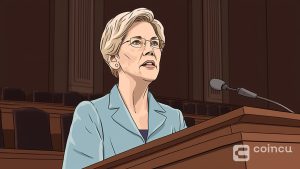The US House of Representatives passes a bipartisan infrastructure bill worth $ 1.2 trillion
The US House of Representatives passed a $ 1.2 trillion bipartisan infrastructure bill that, if signed by President Joe Biden, would enforce new crypto tax reporting requirements for all citizens of that country.
The infrastructure bill first proposed by the Biden government aims to improve the country’s transportation network and internet coverage. However, the bill requires strict reporting requirements for the crypto community that all transactions in digital assets worth more than $ 10,000 must be reported to the IRS.
The bill was first passed by the Senate on August 10, with 69 votes to 30 and passed with an amended compromise proposal by a group of six Senators – Pat Toomey, Cynthia Lummis, Rob Portman, Mark Warner, Kyrsten Sinema and Ron Wyden.
“This law represents a serious flaw and in some cases unenforceable reporting requirements for crypto taxes that threaten future technological innovations,” Toomey emphasized.
Despite the ambiguity in the wording, the infrastructure draft is intended to treat software developers, transaction validators and node operators in the crypto community in a similar way to brokers from traditional organizations.
The US House of Representatives passed the controversial Infrastructure Act with 228 votes to 206.
In addition, the crypto community has expressed concern about the unclear description of the term “broker”, which in turn could place unrealistic tax reporting requirements on sub-communities such as miners.
And as a result, failure to disclose crypto-related income would be viewed as a tax offense and a criminal offense.
Abraham Sutherland, professor at the University of Virginia, expressed concerns about the US government’s decision on the term “broker”:
“It’s not good for all users of digital assets and especially bad for Defi. The regulations won’t directly ban DeFi. Instead, the draft law provides for reporting requirements that Defi cannot meet given the way the sector works.
Coinbase CEO Brian Armstrong also took note of the provision, stating that it “appears to be a disaster” and “could freeze a lot of healthy crypto behavior like DeFi”.
Coinbase itself is a centralized exchange and is likely to be affected by the “broker” policy, which many raised concerns about in August. Coinbase does not operate or own a DeFi service of its own.
Join Bitcoin Magazine Telegram to keep track of news and comment on this article: https://t.me/coincunews
Follow the Youtube Channel | Subscribe to telegram channel | Follow the Facebook page







:max_bytes(150000):strip_icc()/166274033-56a9aad65f9b58b7d0fdce7d.jpg)






